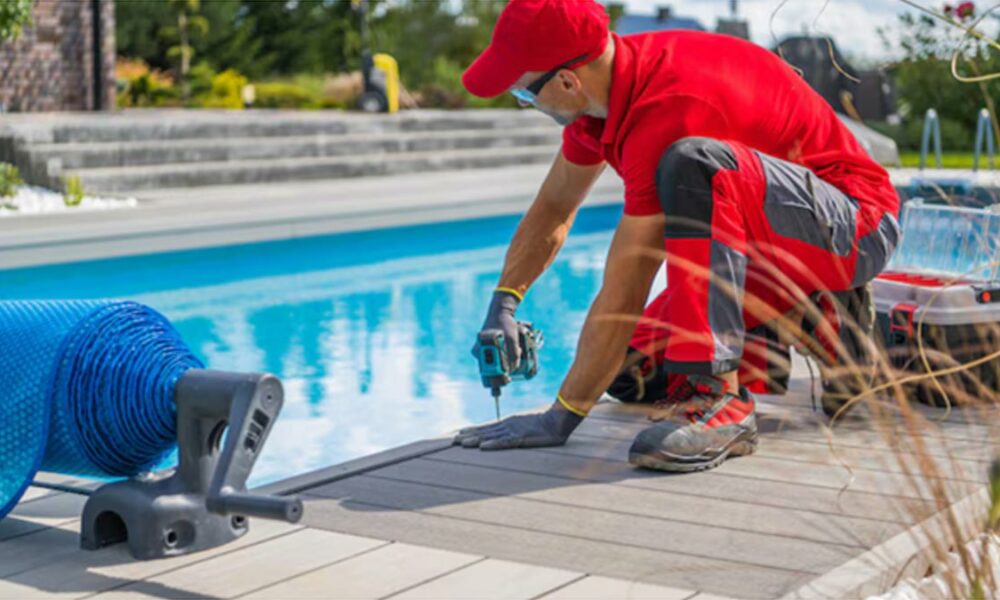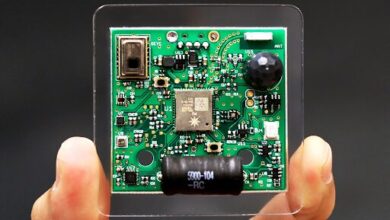The Ultimate Guide to Pool Cleaning and Maintenance

A swimming pool is a luxurious addition to any home, offering a private oasis for relaxation, exercise, and socializing. However, maintaining a clean and healthy pool requires consistent effort and a solid understanding of proper pool care. This comprehensive guide will walk you through everything you need to know about Julington Creek pool cleaning, weekly and bi-weekly maintenance, green-to-clean services, and pool equipment repair and replacement.
Importance of Regular Pool Cleaning
Regular pool cleaning is essential for several reasons:
- Health and Safety: Clean water reduces the risk of infections and skin irritations caused by bacteria, algae, and other contaminants.
- Aesthetic Appeal: A clean pool is more inviting and enhances the overall look of your outdoor space.
- Longevity: Regular maintenance helps prolong the life of your pool and its equipment, preventing costly repairs.
Pool Cleaning Basics
Maintaining a clean pool involves several tasks, including skimming, brushing, vacuuming, and checking chemical levels. Let’s break these down:
- Skimming: Use a skimmer net to remove debris such as leaves, bugs, and dirt from the water surface. This should be done daily to prevent debris from sinking and becoming harder to remove.
- Brushing: Brush the walls, steps, and floor of the pool to prevent algae buildup and remove dirt. Use a brush suitable for your pool’s surface type (e.g., concrete, vinyl, or fiberglass).
- Vacuuming: Vacuum the pool at least once a week to remove debris and dirt that has settled on the bottom. There are different types of vacuums, including manual, automatic, and robotic.
- Chemical Levels: Regularly test and adjust the pool’s chemical levels, including chlorine, pH, alkalinity, and calcium hardness. Proper chemical balance ensures clear water and prevents damage to the pool surface and equipment.
Weekly Pool Cleaning Routine
A weekly pool cleaning routine helps maintain water clarity and hygiene. Here’s a detailed plan:
- Skim and Brush: Skim the surface for debris and brush the walls, steps, and floor.
- Vacuum: Use a pool vacuum to clean the pool floor.
- Empty Skimmer and Pump Baskets: Check and empty skimmer and pump baskets to ensure proper water flow.
- Chemical Testing and Adjustment: Test the water for chlorine, pH, alkalinity, and calcium hardness. Adjust as necessary:
-
-
- Chlorine: Ideal levels are between 1.0 and 3.0 ppm.
- pH: Should be between 7.2 and 7.8.
- Alkalinity: Keep it between 80 and 120 ppm.
- Calcium Hardness: Aim for 200 to 400 ppm.
-
- Shock the Pool: Shocking involves adding a large dose of chlorine to eliminate bacteria, algae, and chloramines. Do this weekly or as needed.
- Check Equipment: Inspect the pool pump, filter, and other equipment for proper operation. Clean or backwash the filter if necessary.
Bi-Weekly Pool Maintenance
For some pool owners, a bi-weekly maintenance schedule may be more convenient. This involves a more thorough cleaning every two weeks, with light maintenance tasks performed in between. Here’s a bi-weekly plan:
- Skim and Brush: Skim the surface and brush the walls, steps, and floor.
- Vacuum: Thoroughly vacuum the pool.
- Empty Baskets: Check and empty skimmer and pump baskets.
- Chemical Testing and Adjustment: Test and adjust chlorine, pH, alkalinity, and calcium hardness.
- Shock the Pool: Perform a shock treatment.
- Inspect Equipment: Check the pump, filter, and other equipment. Clean or backwash the filter.
Green to Clean Service
If your pool has turned green due to algae, a green-to-clean service can restore its clarity. This typically involves the following steps:
- Chemical Treatment: Adding algaecide and a large dose of chlorine to kill algae.
- Brushing and Vacuuming: Thoroughly brushing the walls and floor to remove algae and vacuuming the debris.
- Filter Cleaning: Cleaning or backwashing the filter to remove dead algae and debris.
- Water Testing and Balancing: Testing and adjusting chemical levels to restore balance.
- Regular Monitoring: Keeping an eye on the pool for a few days to ensure the algae doesn’t return and adjusting chemicals as needed.
Pool Equipment Repair and Replacement
Maintaining your pool’s equipment is crucial for its overall health and functionality. Here’s what you need to know about pool equipment repair and replacement:
- Pool Pump: The pump is the heart of your pool’s circulation system. Common issues include leaks, noise, and failure to start. Regular maintenance includes checking for leaks, cleaning the strainer basket, and ensuring the motor is running smoothly. If the pump fails, replacement may be necessary.
- Pool Filter: Filters remove dirt and debris from the water. Types of filters include sand, cartridge, and diatomaceous earth (DE). Regular cleaning and backwashing are essential. Replace the filter media or cartridge as needed.
- Heater: Pool heaters extend the swimming season. Regular maintenance involves checking the thermostat, pressure switches, and heating elements. If the heater isn’t working correctly, it may need professional repair or replacement.
- Automatic Cleaner: Automatic pool cleaners reduce manual labor. Regularly check hoses and connections for leaks and replace worn-out parts.
- Lighting: Pool lights enhance aesthetics and safety. Regularly inspect and replace bulbs or fixtures as needed.
- Chemical Feeders: These devices dispense chlorine or other chemicals into the pool. Regularly check for proper operation and refill as needed. Replace faulty feeders.
Common Pool Cleaning Mistakes
Avoid these common mistakes to keep your pool in top condition:
- Neglecting Regular Maintenance: Skipping regular cleaning and chemical testing can lead to water quality issues and equipment damage.
- Improper Chemical Use: Overusing or underusing chemicals can cause imbalances, leading to algae growth, skin irritation, and equipment damage.
- Ignoring the Filter: Not cleaning or backwashing the filter regularly reduces its efficiency and can lead to cloudy water.
- Incorrect Vacuuming: Not vacuuming the pool correctly or often enough allows debris to accumulate and settle.
- Overlooking Equipment Inspections: Failing to inspect and maintain equipment can result in costly repairs or replacements.
Benefits of Professional Pool Cleaning Services
Hiring a professional pool cleaning service offers several advantages:
- Expertise: Professionals have the knowledge and experience to keep your pool in optimal condition.
- Time-Saving: Regular maintenance can be time-consuming. Professionals handle all aspects of pool care, giving you more time to enjoy your pool.
- Advanced Equipment: Professionals use advanced equipment and techniques for efficient cleaning and maintenance.
- Consistent Results: Regular service ensures your pool is always clean, safe, and ready for use.
Conclusion
Regular pool cleaning and maintenance are essential to keeping your pool clean, safe, and enjoyable. By following a consistent cleaning schedule, balancing chemicals, and maintaining equipment, you can ensure your pool remains a beautiful and inviting part of your home. Whether you choose to handle these tasks yourself or hire a professional service, understanding the basics of pool care is key to enjoying a pristine swimming environment.
Read More From Techbullion And Businesnewswire.com





